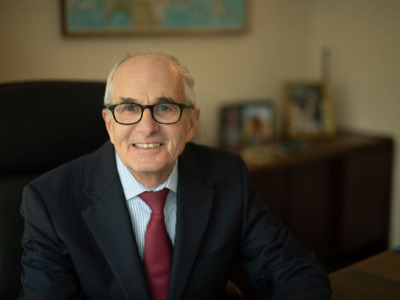Many
historians consider Abraham Lincoln to be our most important President, and
with good reason. The Civil War was our most trying time, dividing the country
and taking 625,000 lives, two percent of the entire population at the time. The Gettysburg Address, at just 272 words,
completely redefined the Unites States.
In
the middle of the Civil War, on May 15, 1862, President Lincoln created the
Department of Agriculture. Five days later, he signed the Homestead Act,
granting land to people who would settle the frontier. Then, on July 2, 1862,
the President signed the Morrill Act, granting tracts of land to the states in
order to endow public universities. The Morrill Act created our nation’s land
grant university system and established many of the great research institutions
relied upon by agriculture in the
Of those three pieces of legislation, the Morrill Act, whose 150th Anniversary is this week, might well have had the largest impact.
Today, there are 106 land-grant universities and colleges across the nation, including historically black and Native American schools. These schools have produced thousands of our most prominent agriculture scientists, along with farmers, ranchers and citizens who have used the knowledge they gained at state universities to drive economic activity, enhance agricultural productivity, and improve their quality of life.
The Association of Public and Land-Grant Universities (APLU) is the organization representing our nation’s land-grant institutions. Last week, APLU received a tremendous honor when the World Food Prize Foundation awarded it the Borlaug Medallion. The Borlaug Medallion is named after Dr. Norman Borlaug, the only Nobel Peace Prize Laureate to receive the award for contributions to agriculture.
The Borlaug Medallion is given to those who have made an especially noteworthy contribution to improving the world’s food supply and ensuring adequate nutrition. The APLU was honored for its role in inspiring multiple generations of students to attain the highest levels of education and scientific achievement. The Medallion has only been awarded three other times.
The land grant universities remain on the cutting edge of our most important research.
Dr.
Borlaug – who many consider one of the most influential and important
individuals of the past 100 years – graduated from a land-grant university, the
At
Land-grant universities are also playing a national leadership role in the area of biofuels and renewable energy. Projects such as the SunGrant Initiative, with five regional centers, strive to determine how best to solve our nation’s energy challenges and make our nation more energy independent. Cornell’s Biofuels Research Laboratory is researching the steps necessary to learn how various types of biomass can be used to create the next generation of biofuels.
We
are already importing less fossil fuel from the Middle East, in part because of
the increased production of renewable energy right here in the
The Morrill Act also set in motion the creation of university extension services. Today, such extension services provide a clear framework for land-grant schools to share its knowledge and research not just with students, but also farmers, ranchers and citizens. Extension services bring the school directly to the farmers and ranchers.
One of the major goals for the new USDA Native American Farmers and Ranchers Advisory Committee is to craft a more effective extension program for Reservations.
The
recent G8 summit at Camp David and the G20 summit in
At the 150th Anniversary celebration of the Morrill Act, organized by APLU, Secretary of Agriculture Tom Vilsack, Secretary of Education Arne Duncan and Bill Gates all paid tribute to the Morrill Act and the land grant universities for being on the forefront of the research needed to sustain the planet in the years ahead.
President Lincoln set in motion our wonderful land-grant universities and all the important discoveries and advances which followed. Right on, Abe!
In
my last conversation with Dr. Norman Borlaug at the World Food Prize in
About the Author: Marshall Matz serves on the Board of the World Food Program—US; the Congressional Hunger Center and the Global Child Nutrition Foundation. He is a partner at OFW Law in Washington, D.C. mmatz@ofwlaw.com
For more news go to: Agri-Pulse.com
#30

